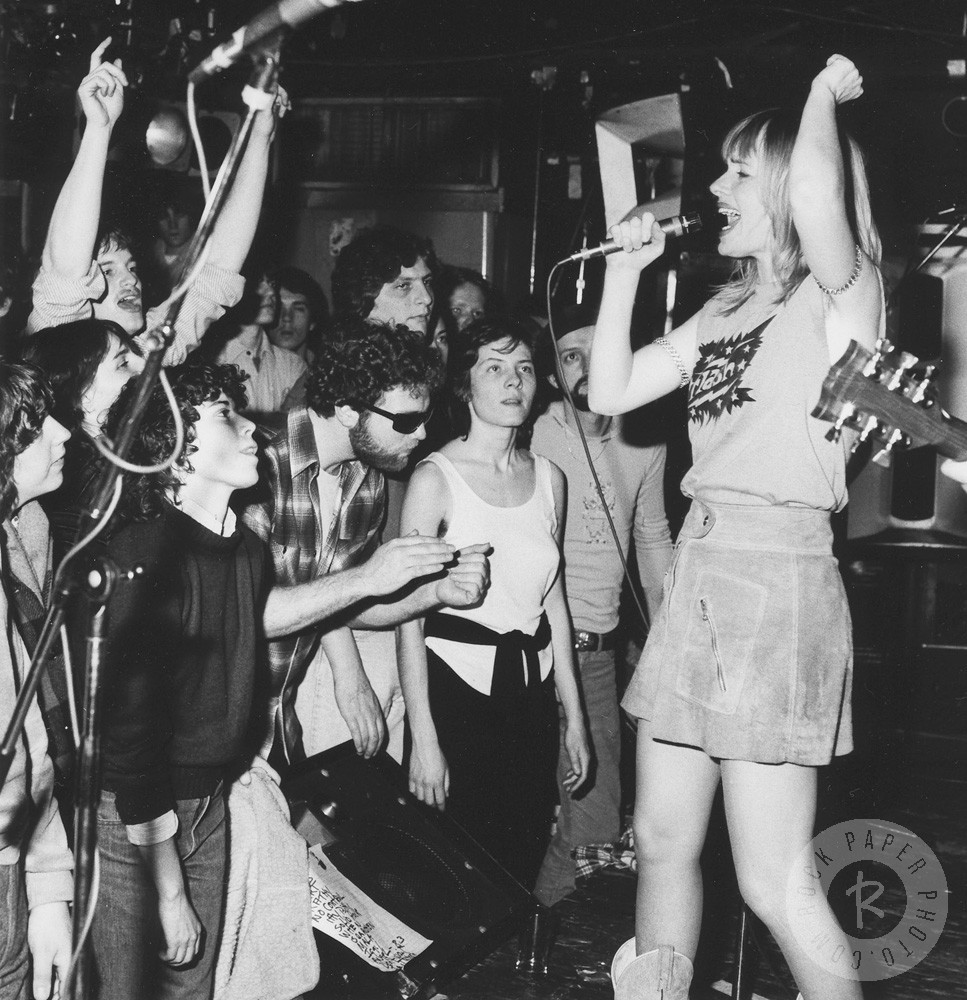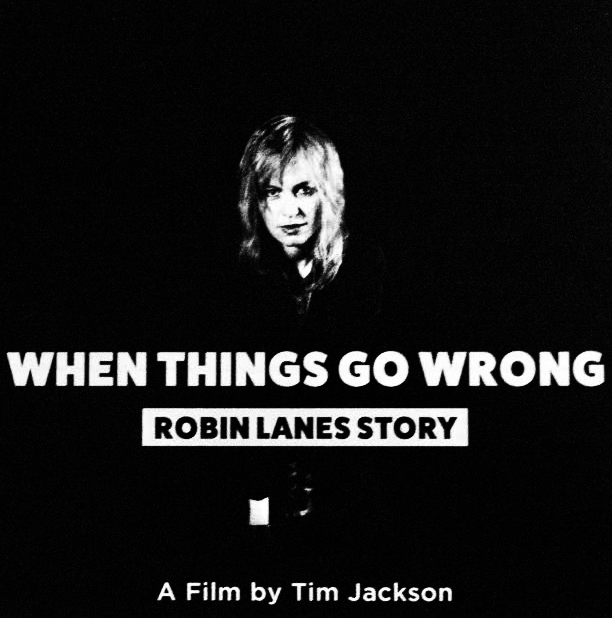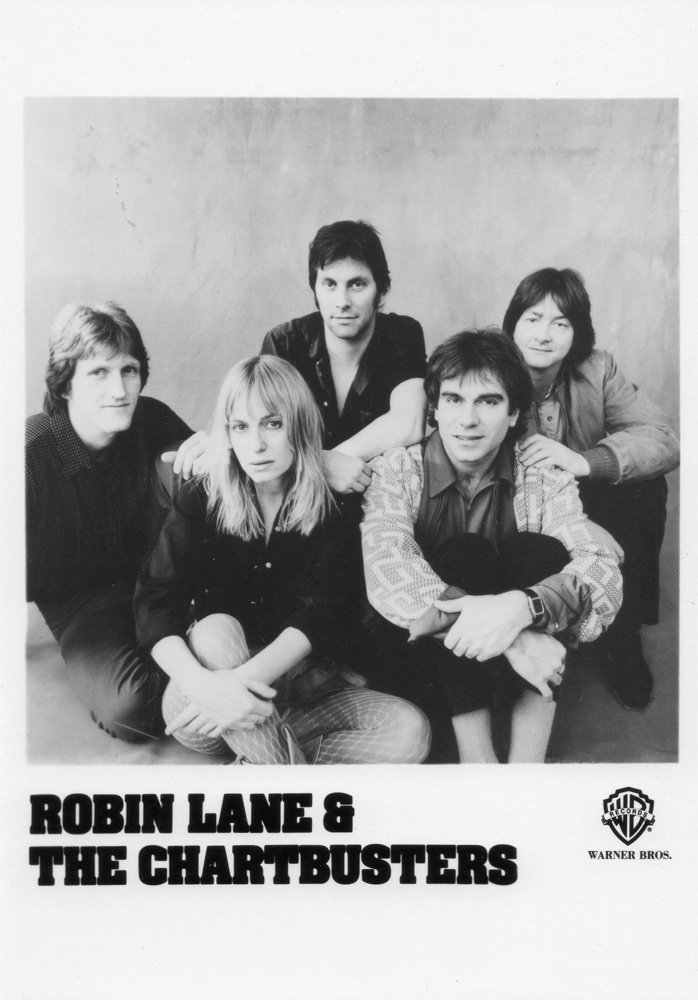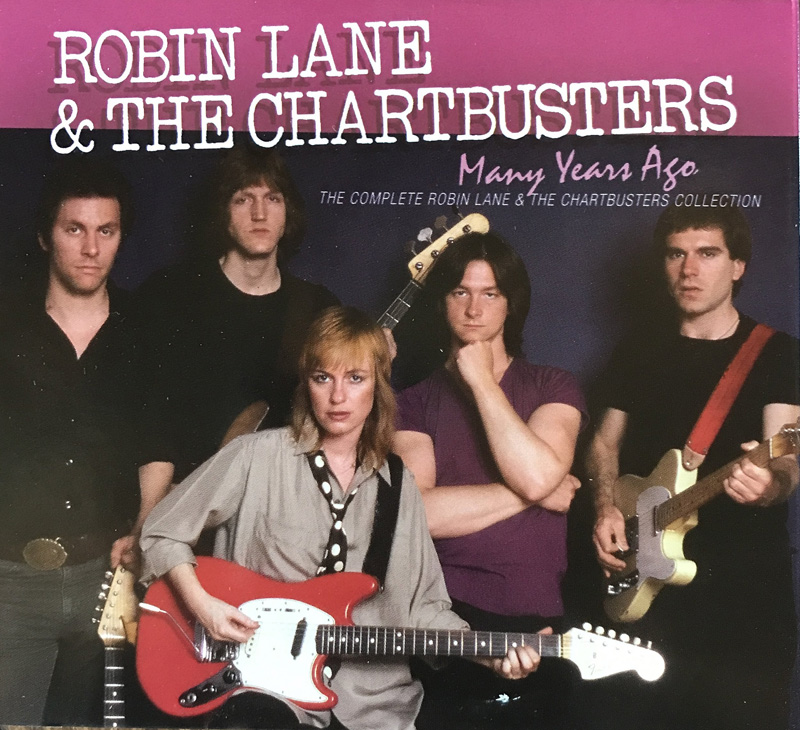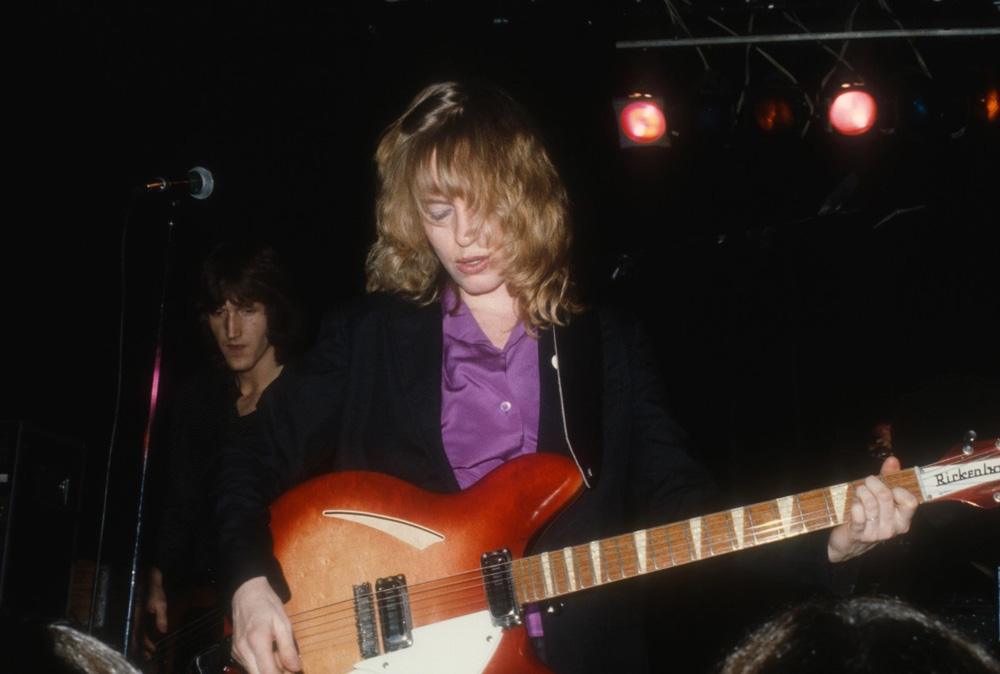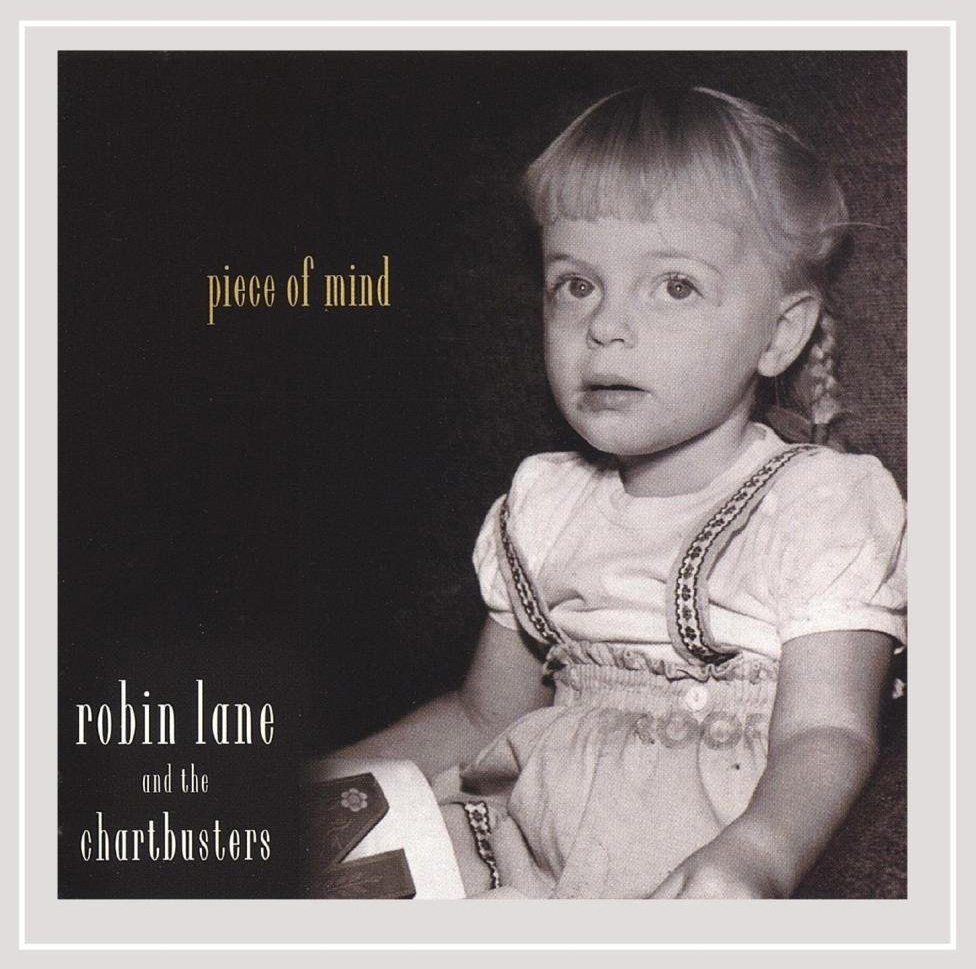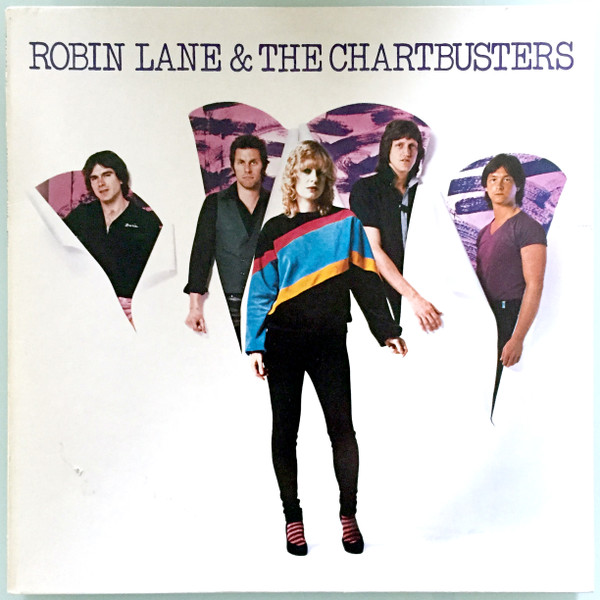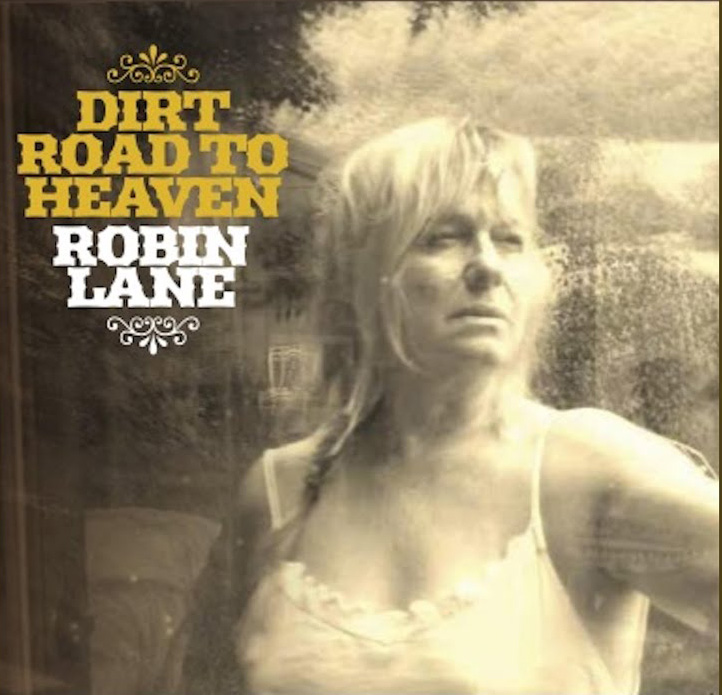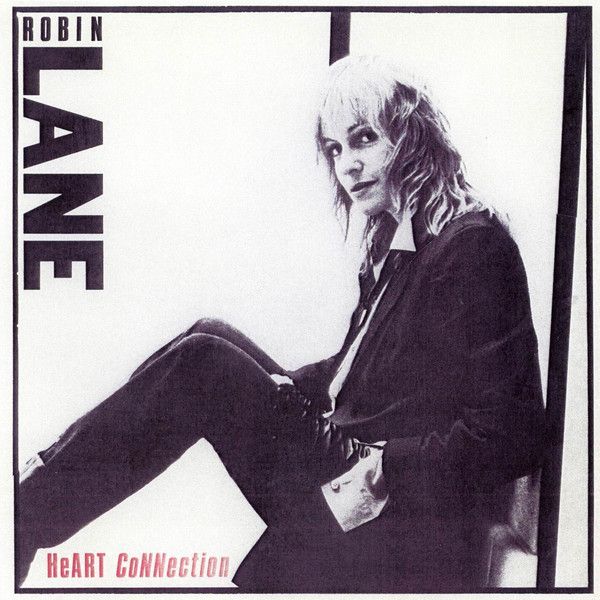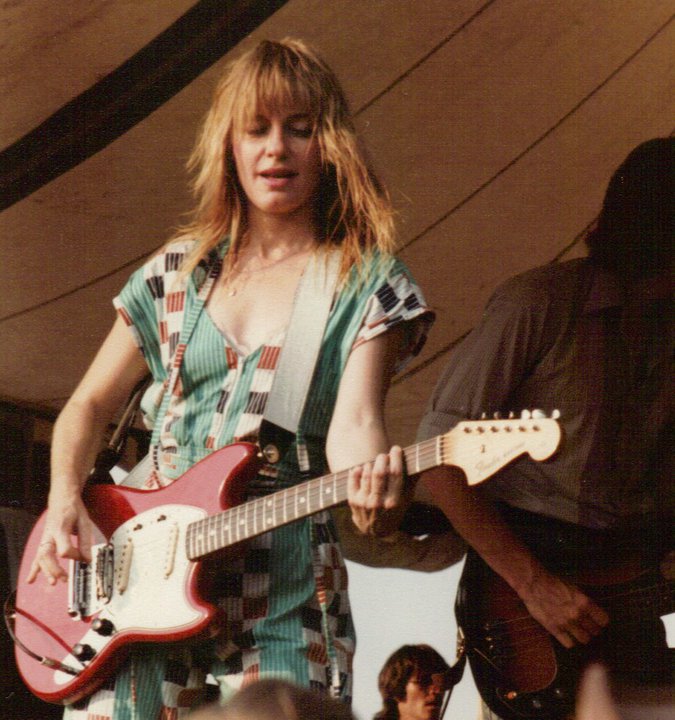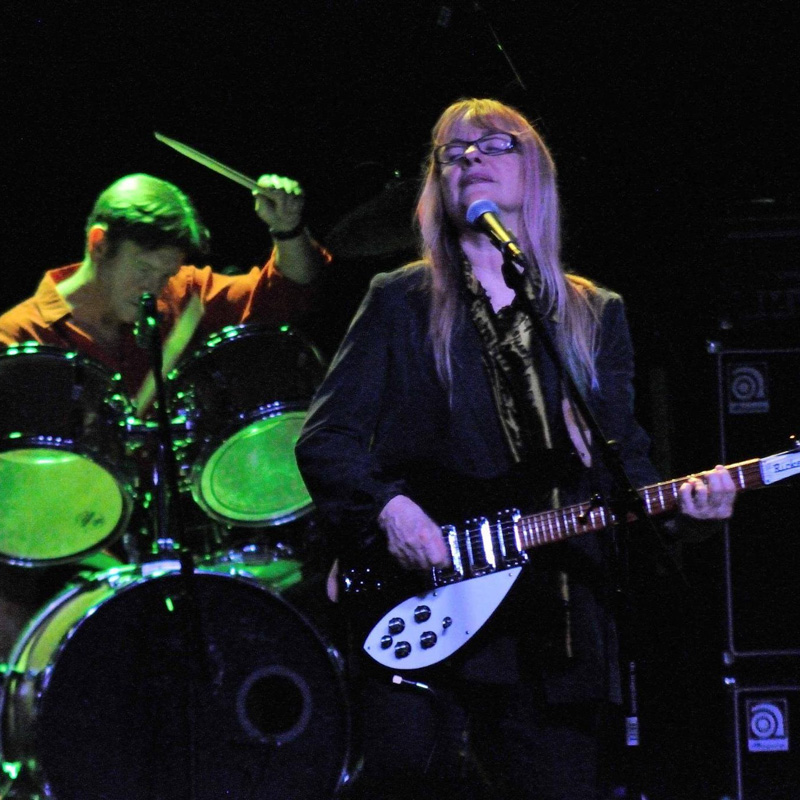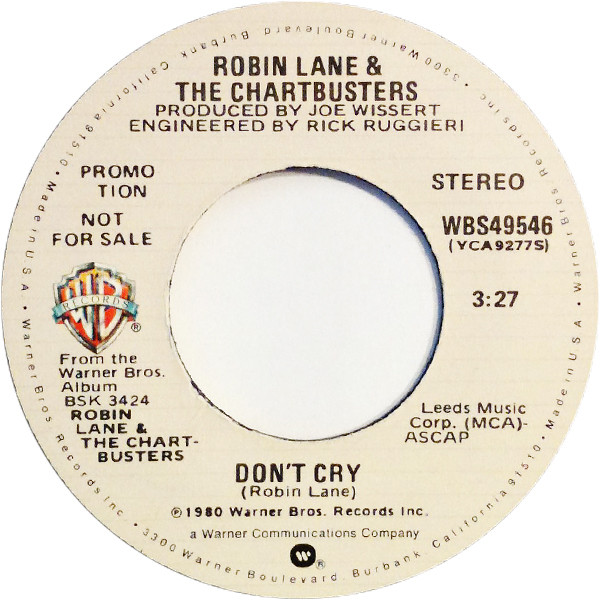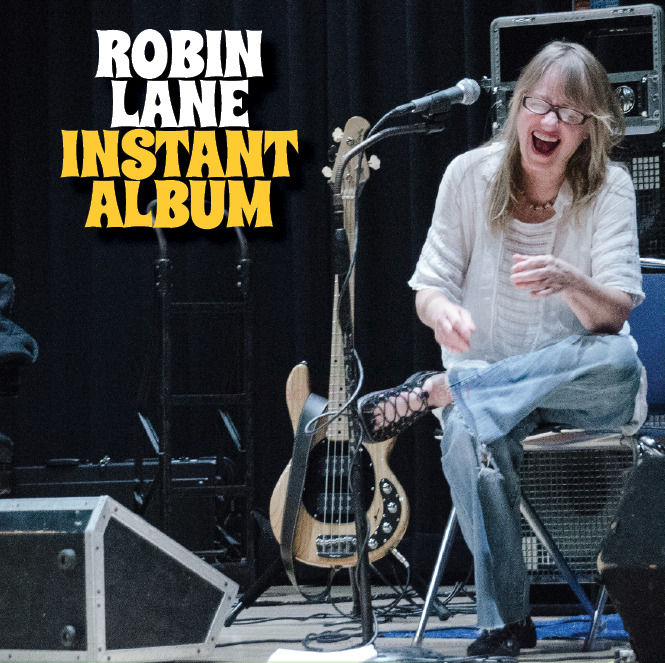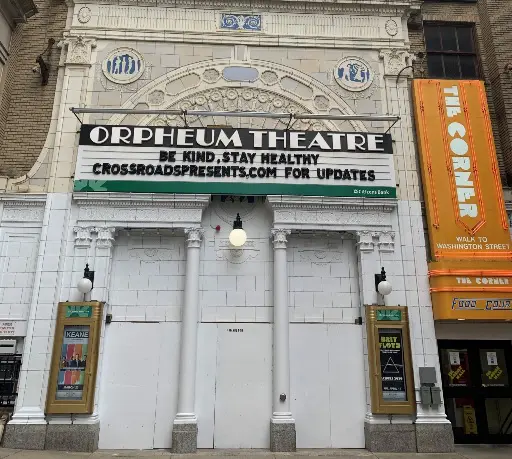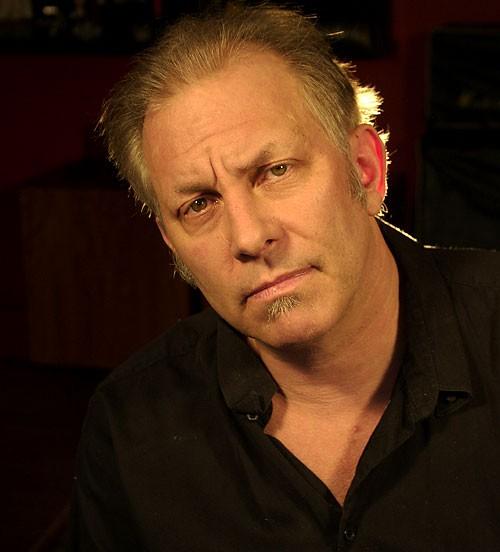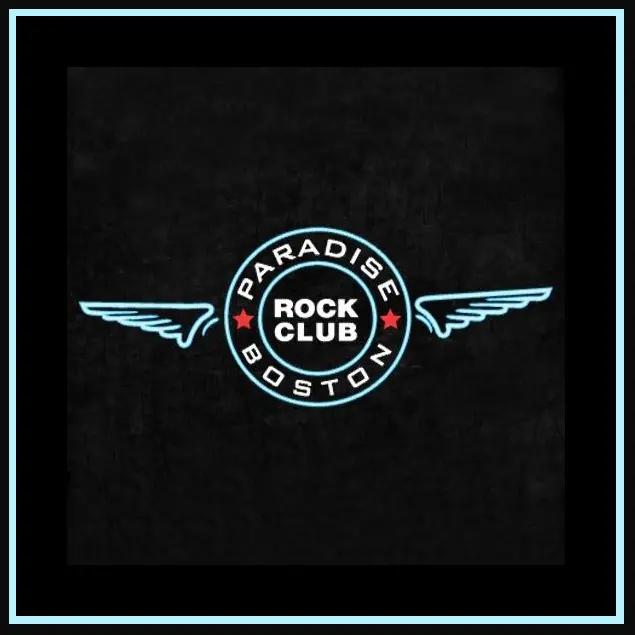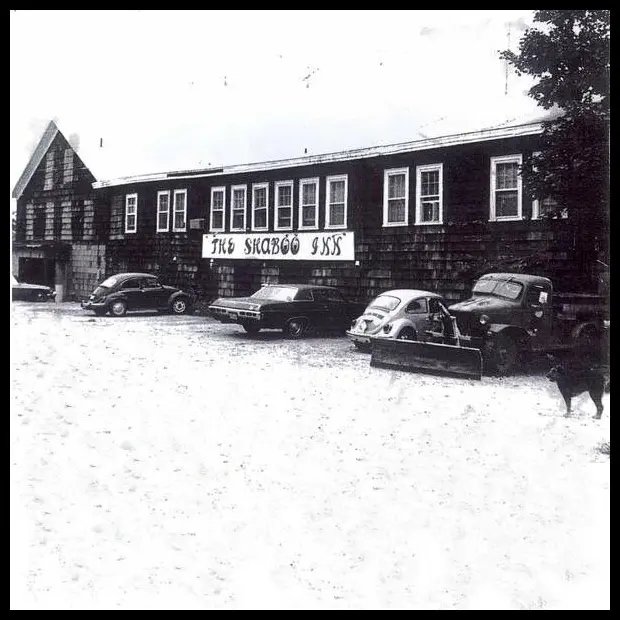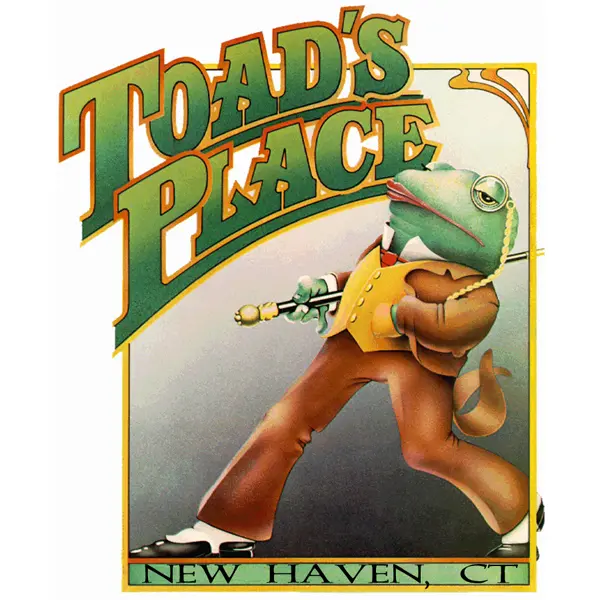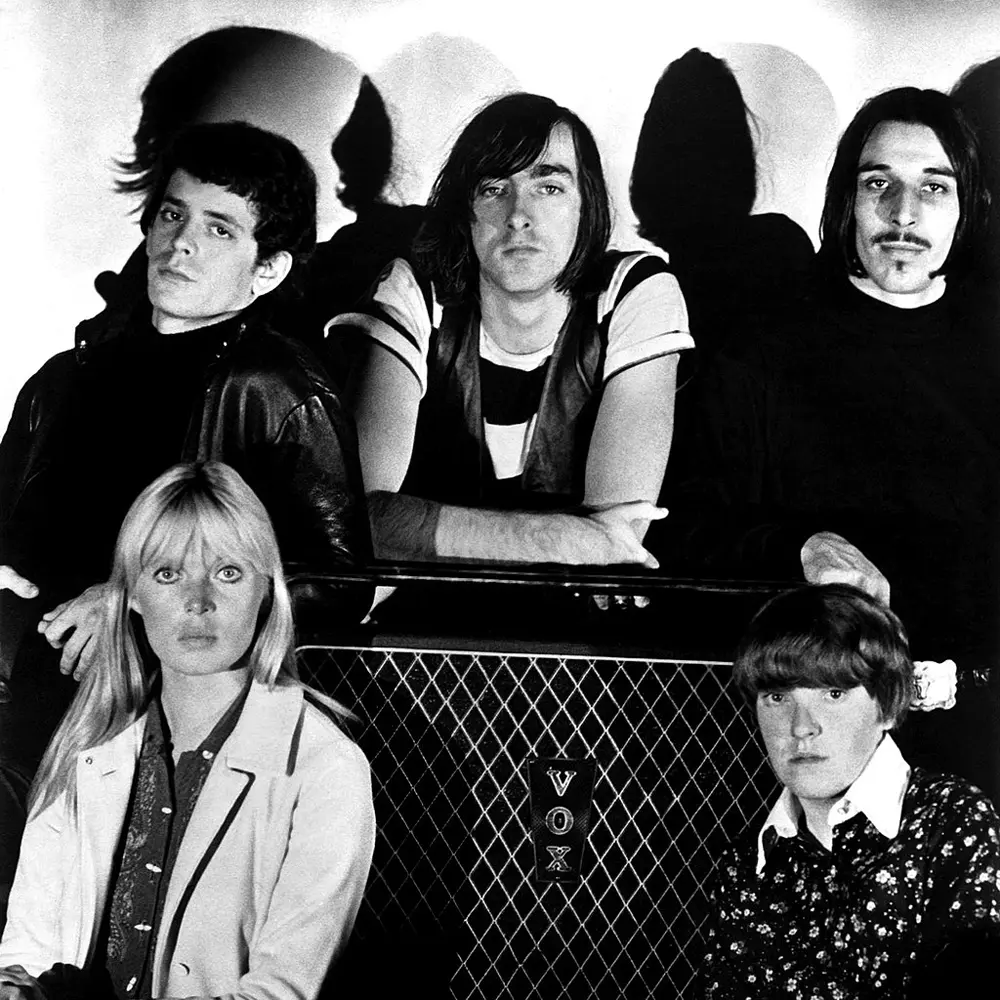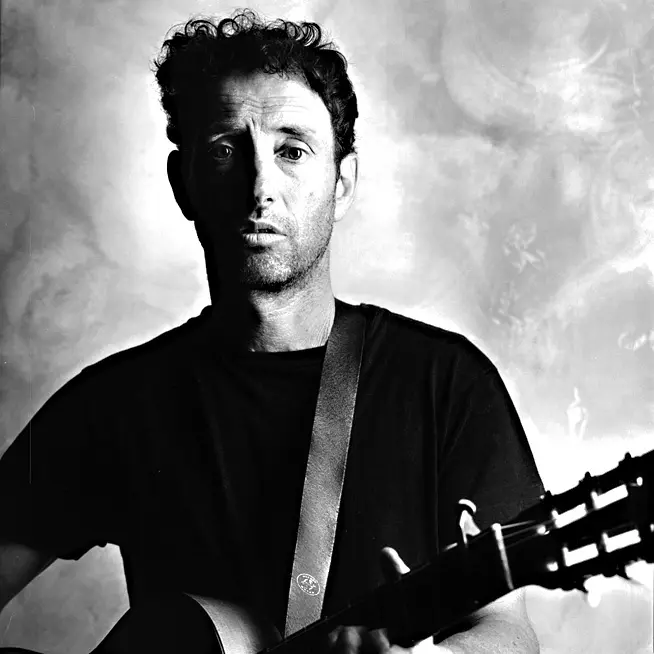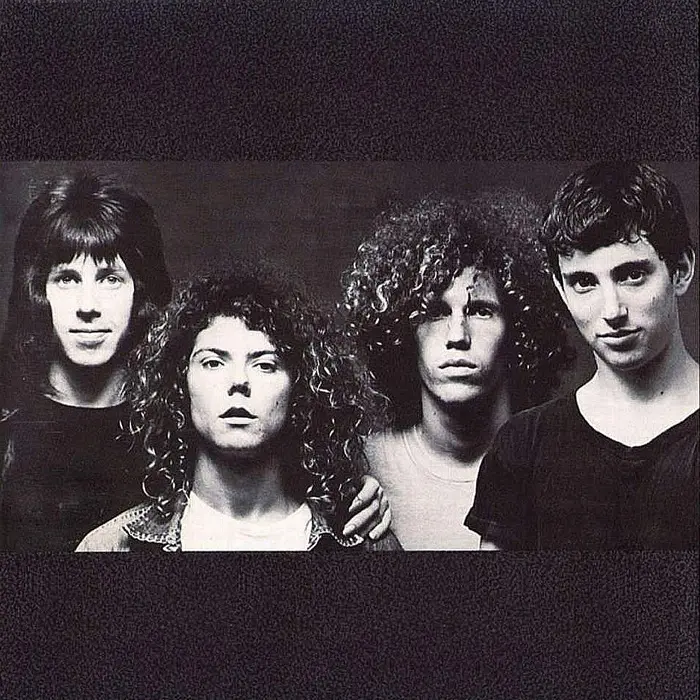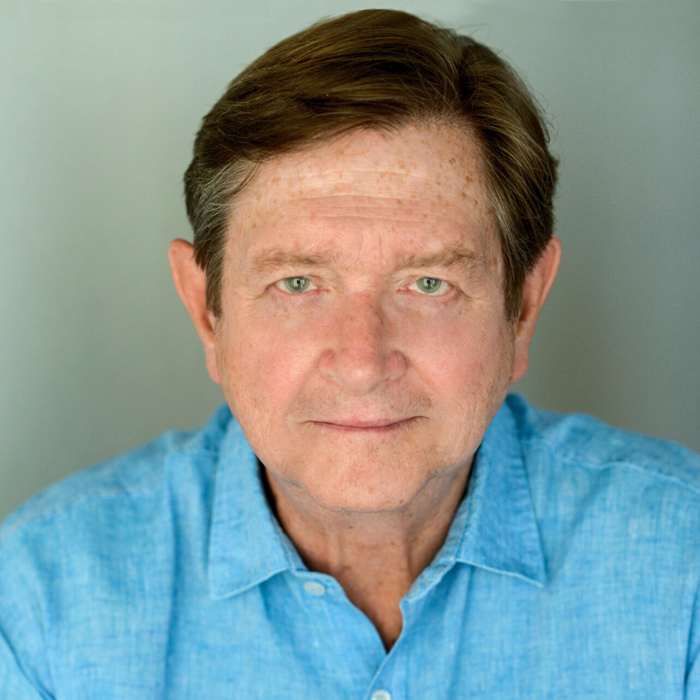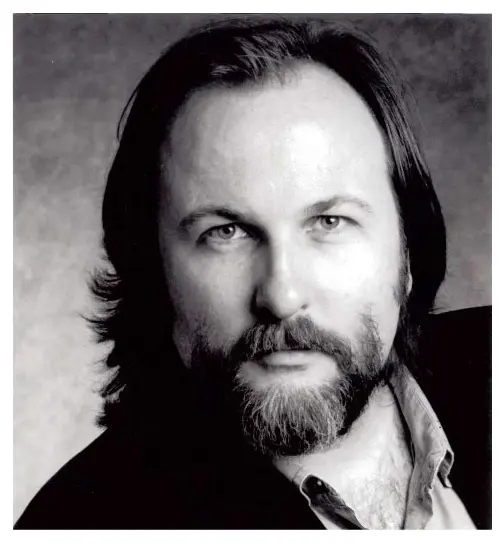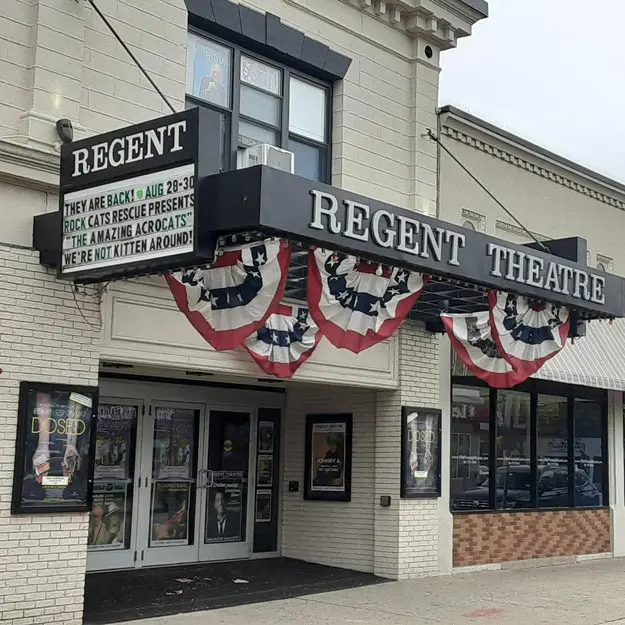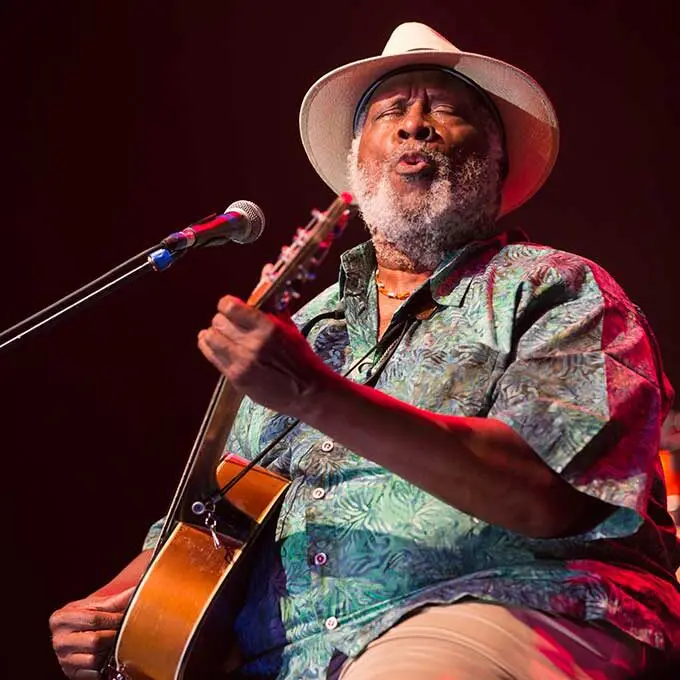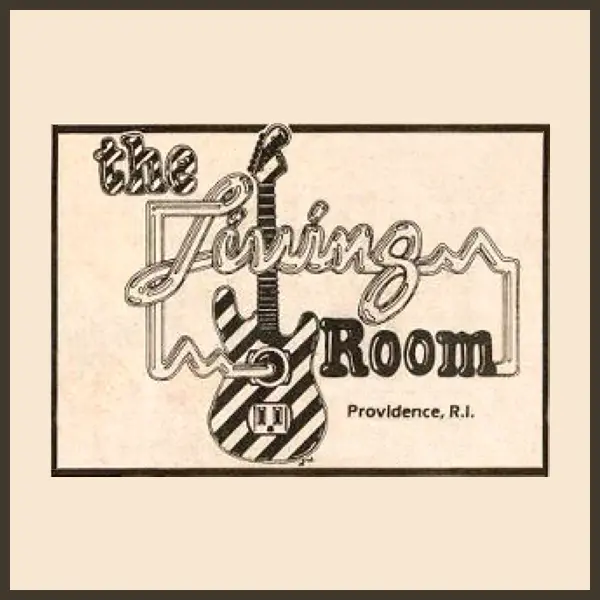Robin Lane
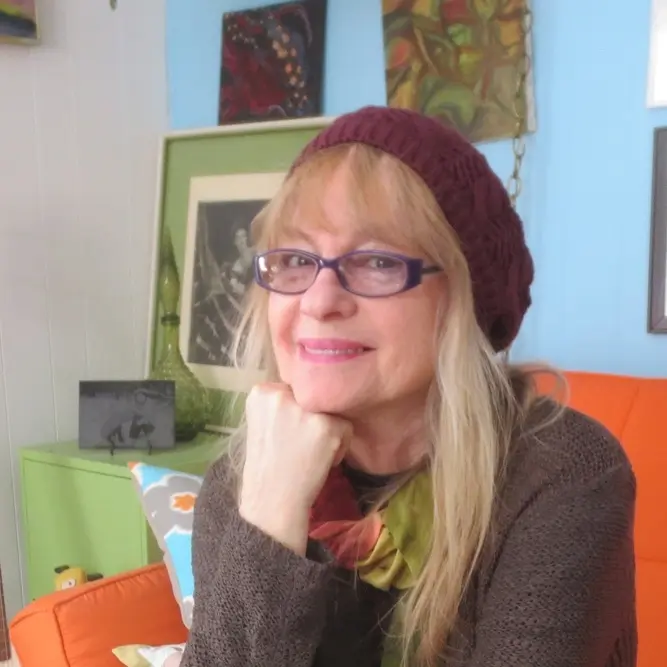
“Man, she rocks wicked hahd! She’s the fekkin’ bawlz!” That’s exactly what my photographer colleague said when we were covering a Hall & Oates show at the Orpheum Theatre in 1980 for a Boston-area weekly, he with his Nikon, me with my notepad. He was referring to Robin Lane, who opened that night with her killer band, The Chartbusters. And I still remember it over 40 years later, not for his almost comically thick Boston accent or for my fond memories of all the shows we saw together. I remember it because it was true. Her 30-minute set made Hall & Oates look like Barry Manilow trying to follow The Ramones.
Intelligent, tough, sexy and lyrical with badass attitude to spare and a gift for writing hooks that would lodge in your brain for weeks, Robin Lane wasn’t, for me and my photo-shooting pal, Boston’s Joan Jett – too rugged, too strong – or Boston’s Janice Joplin – too sloppy, too gone – or Boston’s Pat Benatar – too poppy, just wrong. To us, she was Boston’s Chrissie Hynde. And that was – and remains – the highest praise I could ever pay any female rocker. Or male one, for that matter.
Musical beginnings, Move to Cambridge, Musical shift
Born in Los Angeles in 1947, Lane’s mother was a model and her father was a pianist, songwriter and arranger who worked closely with Dean Martin, among others. He cowrote “Everybody Loves Somebody Sometime,” which Martin sent to #1 in the Billboard Hot 100 and Cash Box Top 100 in 1964. While in her teens, she began singing in folk-rock clubs in southern California and became part of the late-’60s Laurel Canyon scene, honing her craft while hanging out with folk-rock luminaries like Steven Stills, Tim Hardin and Arthur Lee, to name a few.
In 1969, while she was married to future Police guitarist Andy Summers (from 1968 to 1970), she sang backing vocals on Neil Young’s “Round & Round (It Won’t Be Long)” on his 1969 Reprise album Everybody Knows This Is Nowhere. She says she watched his songwriting process closely during the sessions and that she used to play his new songs at auditions. “I observed how he wrote songs, which I’d then learn and go round playing them when I auditioned at record companies,” she told Uncut magazine in 2009.
In the ‘70s, Lane lived in eastern Pennsylvania before settling in Cambridge, Massachusetts, around 1977, largely for the then-burgeoning Christian-rock scene. Her musical interests had begun to move from folk-rock to a harder-edged stuff before arriving in the area, she said, but being in and around the actual scene drove her to complete the switch.
Protopunk/punk appeal, “Fresh influencers”
Speaking to Americana Highways magazine in 2022, she said she was drawn to the “fresh influencers” in the protopunk movement (The Velvet Underground especially) and punkers because they seemed to believe in the same things she did. “Everything the punk bands were singing about – the dismal end of life, no hope, kill me now – was a Eureka moment for me,” she said. “Finally, I had found the home I knew would be good for what I wanted to say in the new way I wanted to say it. The folks who loved ‘folkie Robin’ thought I’d gone and lost my mind. So, from those new and fresh influencers, I began writing songs in the singer-songwriter vein with the singer-songwriter types. Then I go to Boston and – yipeeee! – start what I think is a ‘punk’ band.”
In the same interview, she said she got into the punk scene since everything about it was vital at the time. “How did I go from singer-songwriter to hanging out at the Rat wanting to bang on people’s heads with truth to a fake world? [Because] the scene – and this was a scene – was so vital,” she said. “Music had been watered down out in the world. I heard about punk music while I was still a folkie – and I didn’t understand it.”
Also in that interview, Lane said her Christian faith played a significant role. “I still had a lot of things to say about the state of society, plus at that time I was a pretty big Christian and I had even more to say about that, but hopefully not in a preachy way,” she said. “I just knew there was light at the end of the tunnel and figured people who hung out at places like CBGB and the Rat really, really needed hope and love ‘cause that’s what Jesus was about to me: love, love, all-the-time love, not the idiot right wing.”
Robin Lane & The Chartbusters, Debut album, First singles
In 1978, Lane formed The Chartbusters, the name being a take on Tom Petty’s band The Heartbreakers, who were reasonably popular at the time but would hit paydirt the next year with their Damn the Torpedoes LP, which sailed to #2 in the Billboard 200. Wanting musicians whom she considered “new influencers,” she conscripted Jonathan Richman & The Modern Lovers’ guitarists Leroy Radcliff and Asa Brebner, then added bassist Scott Baerenwald on bass and drummer Tim Jackson.
Lane had signed a recording deal with Private Stock Records but the company closed in 1978 after its owner moved to London. Fortunately for the group and its growing fan base, however, Warner Bros. East Coast A&R boss Jerry Wexler caught one of their live shows and signed the band pretty much on the spot. Their self-titled debut album dropped in 1980 and one of the two singles, “When Things Go Wrong,” eked into the Billboard Hot 100 at #87; the other one, “Why Do You Tell Lies?”, didn’t chart. Reviews were favorable, though, and the video for “When Things Go Wrong” was the 11th one MTV broadcast on its debut show (August 1, 1981).
5 Live, Imitation Life, Other Albums
The band cut two more discs for Warner Bros., the EP 5 Live (1980) and the LP Imitation Life (1981), and clocked stage hours all across New England at venues including the Paradise Rock Club, the Shaboo Inn, Toad’s Place and The Living Room in Providence, where, in 1980, they became the first band with national exposure to appear at the club. The poor commercial performance of the post-debut albums, however, combined with a variety of management disputes, resulted in The Chartbusters breaking up in 1983.
In 1984, Lane recorded the solo EP Heart Connection and during the rest of the ‘80s and ‘90s she performed mostly solo while contributing songs to Susannah Hoffs, Warren Zevon, John Hiatt and Taj Mahal, among others. In 1989, she self-released the cassette In Concert and in 1995 she recorded Catbird Seat on the Ocean Music label. In 2001, Lane and several Chartbusters regrouped for two reunion concerts, then continued performing semi-regularly before recording 2003’s Piece of Mind on Windjam Records.
Songbird Sings, Instant Album, Dirt Road To Heaven
In 2010, Lane founded Songbird Sings, an organization “dedicated to helping people work through and recover from traumatic experiences [such as] domestic violence, sexual exploitation, childhood abuse and war through songwriting and creative collaboration,” according to its official website. Lane and her team conduct songwriting workshops with trauma survivors, using various writing styles and musical genres. In 2013, the project produced the CD A Woman’s Voice.
In 2020, Lane self-released Instant Album, which she produced with bassist John Pfister at his Ringo Studio in Marblehead; it consists of material drawn from her entire 40-plus-year career. In 2022, she recorded Dirt Road to Heaven, a 11-track, country-twinged collection of original material, on Red on Red Records; she also recorded the single “All I’ll Ever Need,” which does not appear on the album.
When Things Go Wrong: Robin Lane’s Story, Many Years Ago
Chartbusters’ drummer Tim Jackson spent most of 2013 directing the 90-minute documentary When Things Go Wrong: Robin Lane’s Story. Through interviews, concert footage, home movies and 22 original songs, the film reviews her early career and post-Chartbusters reinvention and she talks about surviving four decades in the music business. Journalist, author, former MTV and VH1 executive and 2013 Rhode Island Hall of Fame inductee Bill Flanagan appears in the film along with others, providing background on the Boston music scene in the late ‘70s and early ‘80s. It premiered in April 2014 at the Regent Theatre in Arlington.
In March 2019, most of the original band members staged another reunion show at The Burren in Somerville to support the Blixa Sounds release of Many Years Ago: The Complete Robin Lane & the Chartbusters Collection. The three-disc set consists of the band’s first two albums and the EPs 5 Live and Heart Connection in addition to some outtakes, demos and live performances.
Comments on songwriting styles, Music as healing
Asked in the Americana Highways interview if her work with the Songbird Sings program has helped her own writing, Lane said it has had a hugely positive impact. “When I facilitate workshops with trauma survivors, we first listen to several styles of songwriting,” she said. “That has given me the opportunity to explore so many diversified styles.
”Some of the music I came up with for a youth in Boston, who had been trafficked, had to be hip-hop, or rap. I listened to JZ and Nicki Minaj and put together all the young women survivors’ songs, as if I was JZ or Nicki Minaj. Of course I wasn’t, but what a thrill to try to be like someone else you are absolutely not like! It was extremely fun and inspiring to make believe I was a different type of music person.”
“The best part was working with these young women who – after initially wondering what this older white lady was doing with them – began to think there just might be hope for themselves,” she said. “Music is such a tool for healing. Writing your own song, then hearing it played back to you offers you a safe place to feel the emotions you are usually running from.”
(by D.S. Monahan)

